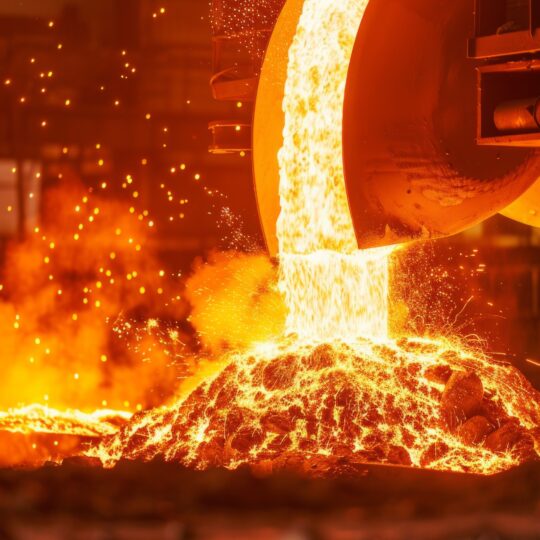How to Use Vermiculite for Industrial Applications

Industrial applications require strong, durable materials that resist corrosion and handle heat. While metals and concrete are often used for these purposes, they may be too heavy for certain needs. Luckily, there are natural, lightweight alternatives, like vermiculite.
Why Vermiculite is Ideal for Industrial Use
While different industrial applications require specific materials, there are a few common ideal components:
- Durability. Heavy machinery or structural forms require strong materials that can withstand pressure.
- Corrosion resistance. Harsh environments can cause some materials to degrade.
- Lightweight. Make it easy to work with in versatile ways.
This is often why steel, concrete, and certain composites are used for a wide range of industrial needs. However, there are minerals like vermiculite that can offer some of the same properties.
- Inert. Non-reactive to other chemicals in demanding environments.
- Lightweight. Easy to handle and incorporate into various systems.
- Fire- and thermal-resistant. Withstands high temperatures without degrading.
- Absorbent. Ideal for containing liquids to prevent leaks and clean spills.
- Versatile. Available as concentrate, exfoliated material, or finely ground powder to suit diverse needs.
Because of its versatility, vermiculite is a sought-after material for a number of industrial applications, including construction, packaging, and other specialty materials.
Using Vermiculite for Industrial Construction
Vermiculite is known for its fire-proofing properties, which is why it’s part of building boards and plasters in residential and commercial construction. However, its high capacity for heat and lightweight ease of use also benefits construction across industries in the following ways:
- Used in high-temperature insulation for metallurgy, glassworks, and foundries.
- Maintains optimal temperatures in steel production processes.
- Acts as an aggregate to create lightweight, fire-resistant, and insulating concrete for floors and roofs.
- A component in refractory bricks, cements, and mortars for building, coating, and improving the durability of ovens, furnaces, and kilns.
Not only does vermiculite help enhance the structural stability of construction materials, but it also helps reinforce the materials under intense heat, making it ideal for high-temperature industrial environments.
How Vermiculite’s Absorbency Benefits Packaging
Transporting industrial materials requires extra protection, especially when hazardous liquids are involved. Vermiculite’s lightweight, absorbent properties offers a natural solution for the following:
- Containing leaking chemicals or other liquids
- Absorbing spills for environmental cleanups
- Providing shock absorbing cushioning for fragile items
- Lightweight material reduces shipping costs
Whether used as a filler or container, vermiculite’s versatility is an industrial essential.
Other Vermiculite Industrial Applications
In addition to construction and packaging, vermiculite can be part of the following products and processes:
- Friction linings for automotive and industrial applications
- Component of fire protection coatings, gaskets, and specialty papers
- Exfoliates upon contact with molten metal, forming an insulating barrier
- Combined with cement to create sealants for underground mines
- Enhances flame retardancy and protects against ultraviolet (UV) damage
- Adds fire-resistant properties to coatings and sealants
Given all of vermiculite’s multifaceted properties that benefit a wide range of industrial applications, the only question is, which vermiculite product is right for your needs? At Specialty Vermiculite, we provide high-quality products tailored to meet your specific requirements. Contact us today to learn more.